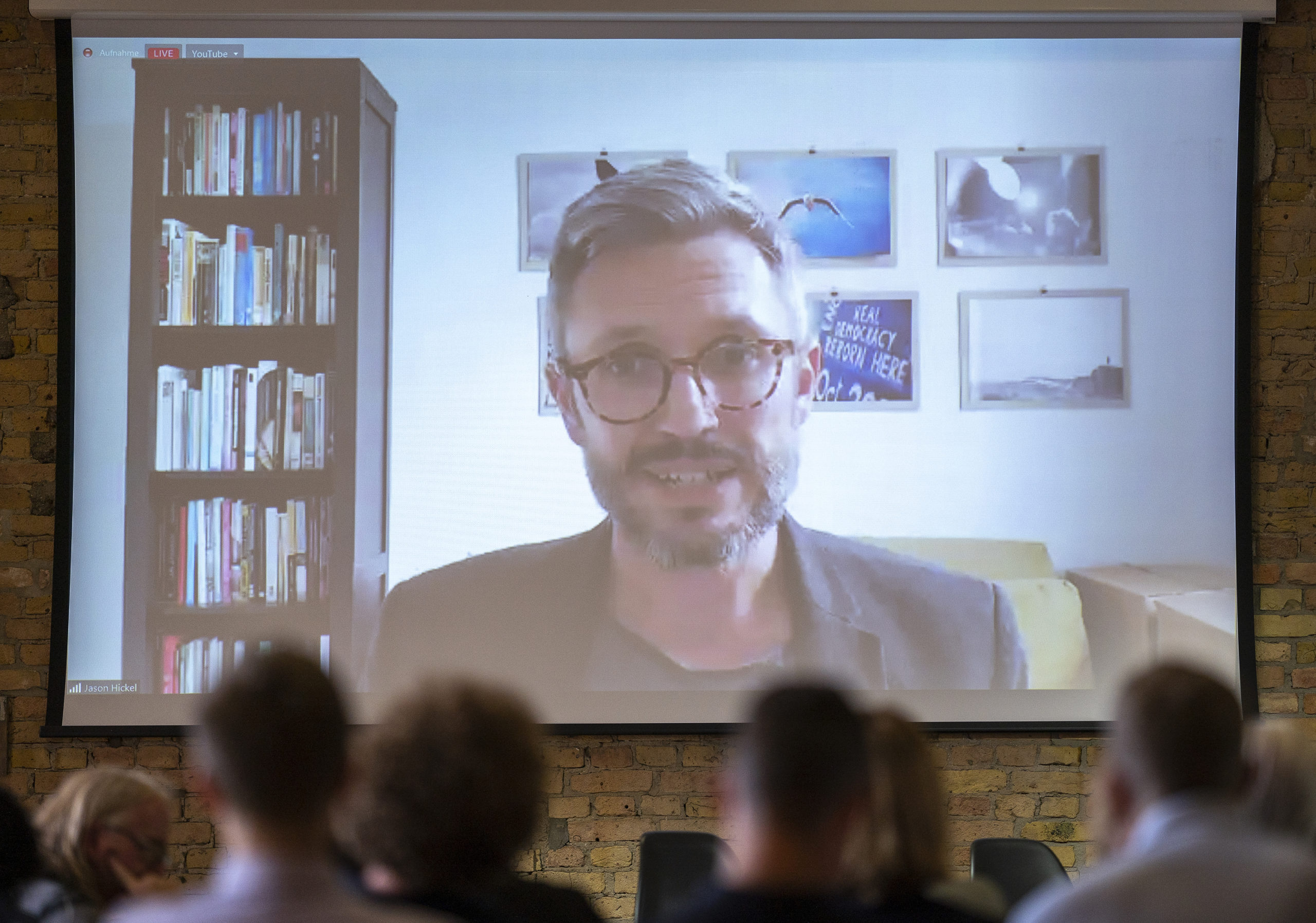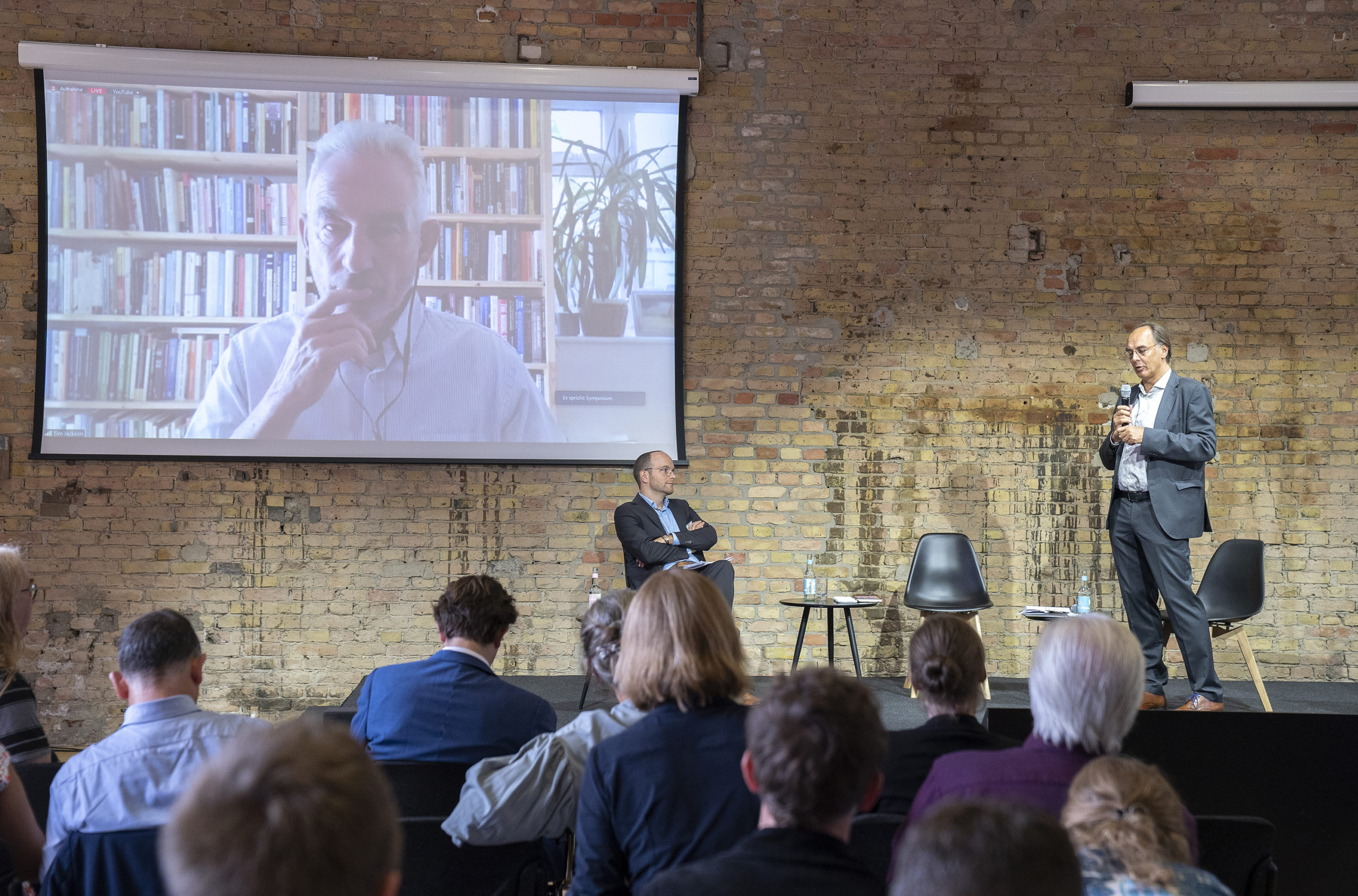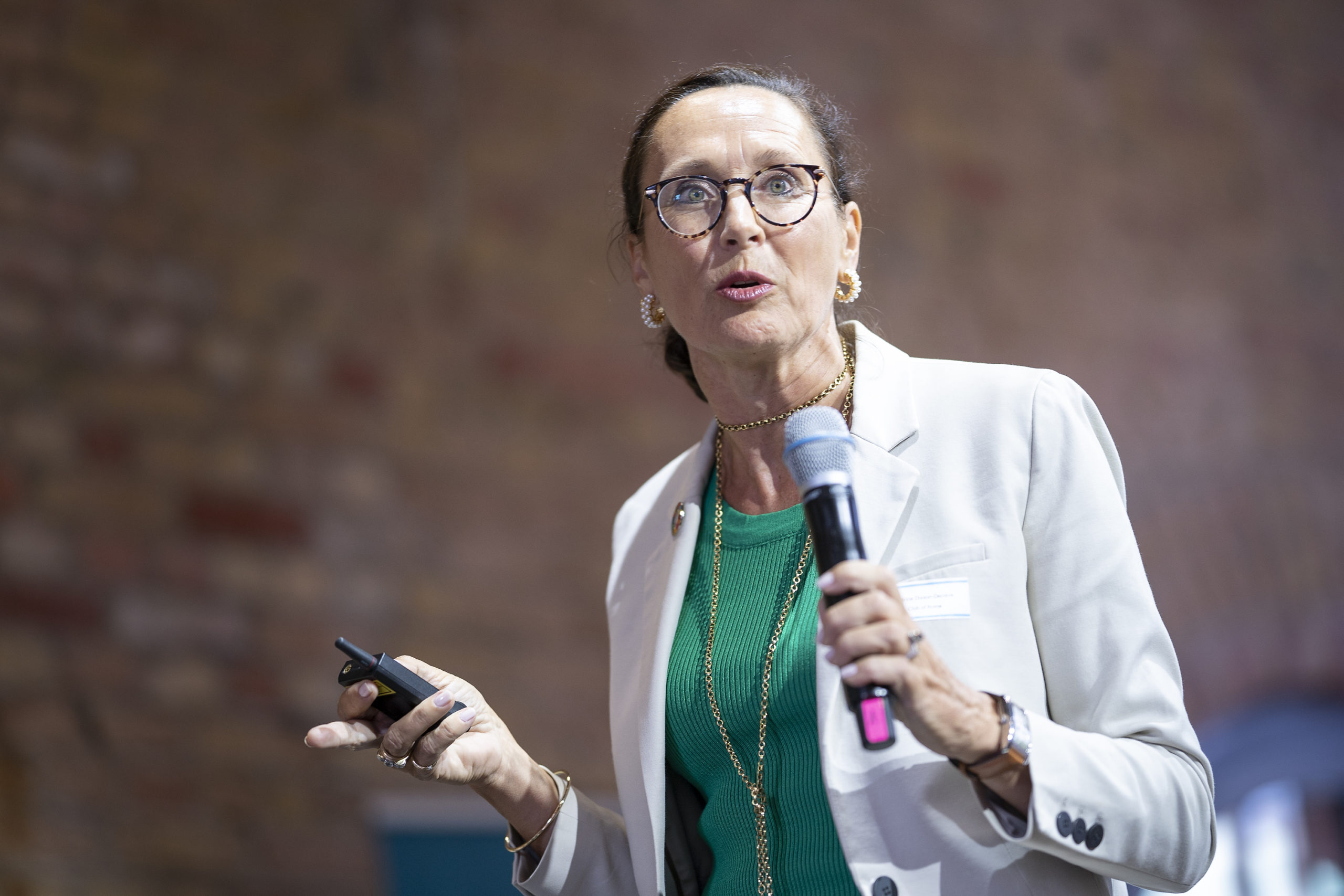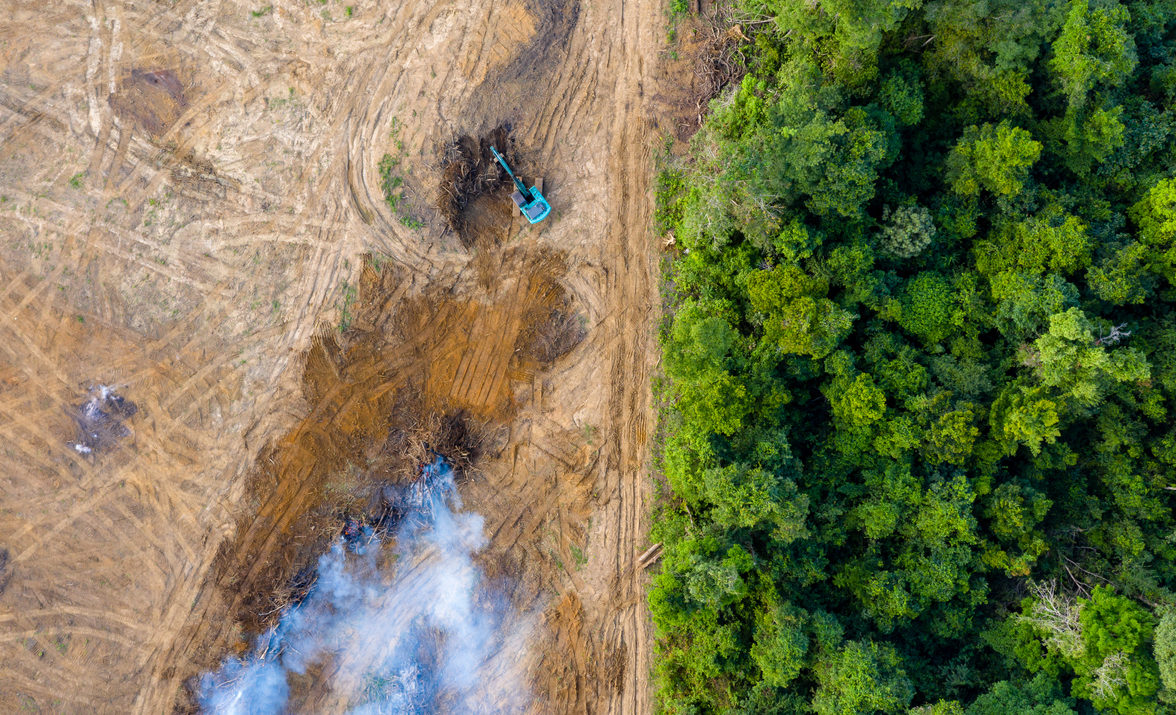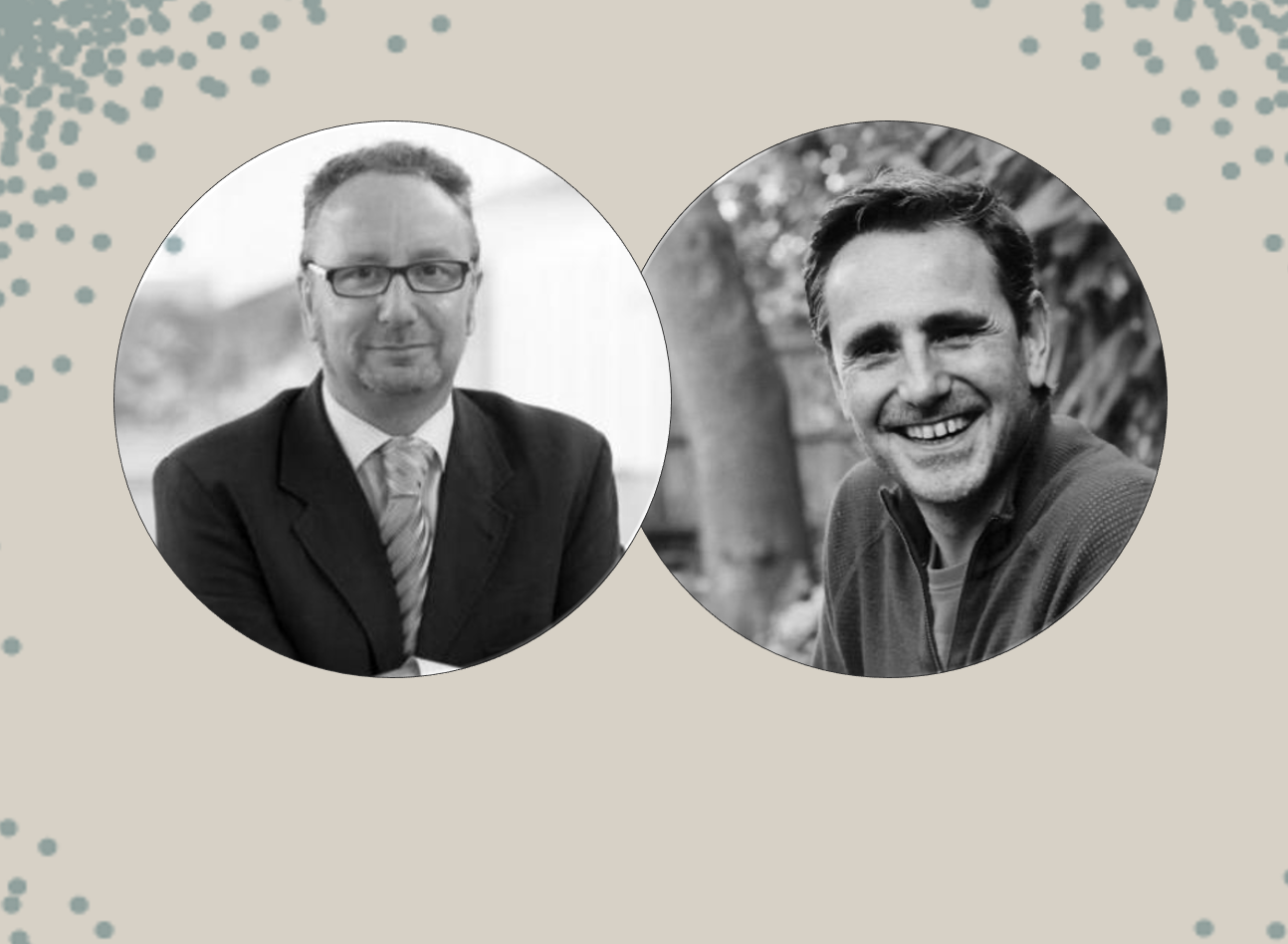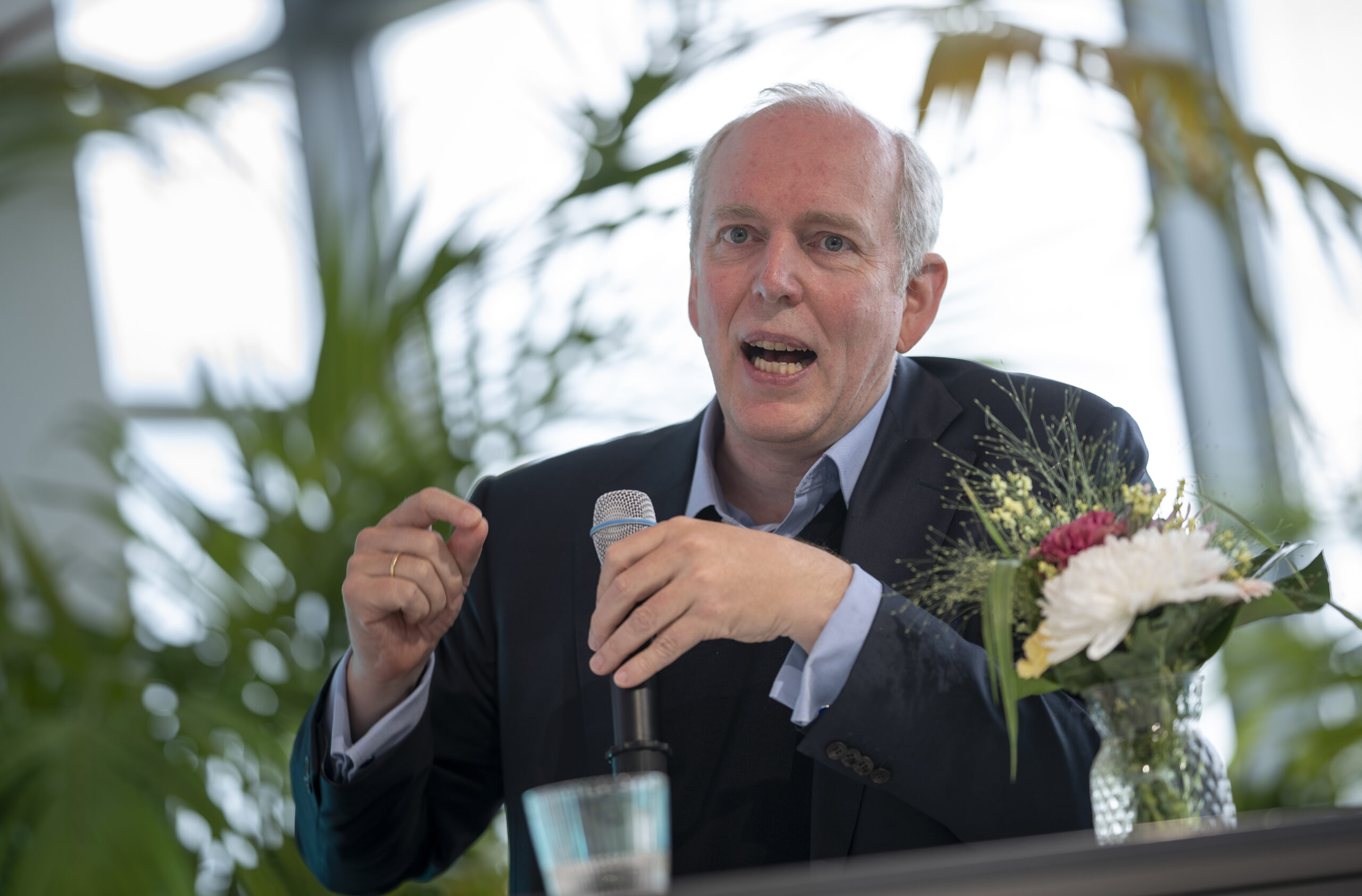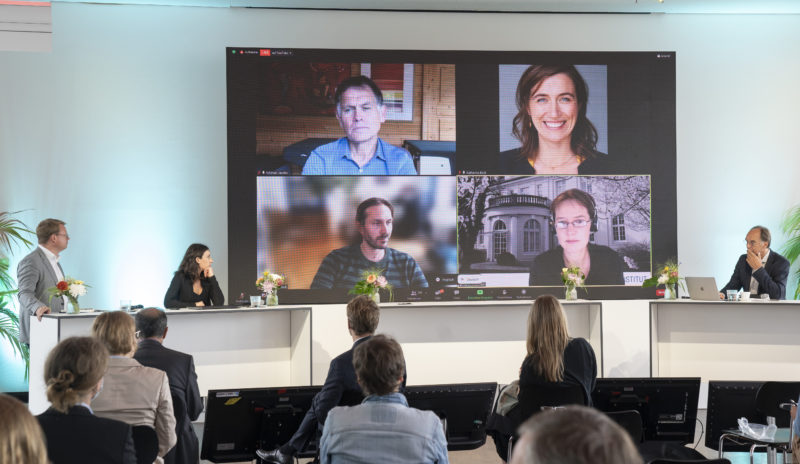






Innovation Lab
INNOVATION LAB
Do we need a whole new understanding of economic growth? What would be a real alternative? How viable are alternatives to GDP when it comes to measuring prosperity? These and other more fundamental challenges are what this section is about.
LATEST NEWS
Should We All Work Less?
In most economies, people today work as much as they did decades ago, despite increases in productivity. Why is that the case? We invited leading researchers to our New Paradigm Workshop to discuss the answers.
Should We All Work Less?
In most economies, people today work as much as they did decades ago, despite increases in productivity. Why is that the case? We invited leading researchers to our New Paradigm Workshop to discuss the answers.
“The New Economics: A Manifesto”
Steve Keen has written a new book where he breaks with mainstream economic modeling. In our New Economy Short Cut, Steve discussed his ideas for a new kind of economics with Ann Pettifor and Peter Bofinger. Can his proposals remedy existing shortcomings in the current system?
New Economy Interview: Do we need to commit corporations more strongly to the common good?
In a new episode of our New Economy Interview series, we speak to Michael Peters about DAX companies' use of their profits solely in the interests of shareholders - and what could be done about it.
Economic Change Unit creates research base for new economic concepts
The Economic Change Unit just launched their New Economy Brief – a website that helps to navigate through the increasing volume of innovative proposals on climate, inequality and else.
From Planetary Emergency to Regenerative Economics
Can the concept of "regenerative economics" be an answer to the growth debate? At our Symposium on Prosperity in the 21st Century, André Reichel and Jana Stöver presented this concept.
Symposium: Prosperity in the 21st Century
In the pandemic, doubt has grown that the way we do business and deal with risks is sustainable. Corona is a wake-up call and catalyst for a restructuring of the global and German economic model. But what does that mean? What could a different way of doing business look like?
Beyond Growth: Toward a New Economic Approach
Michael Jacobs writes about new goals and benchmarks for economic and social progress. The report, written for the OECD, is now available in German.



